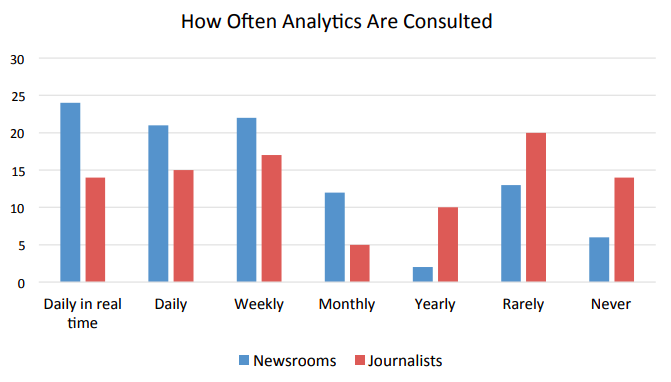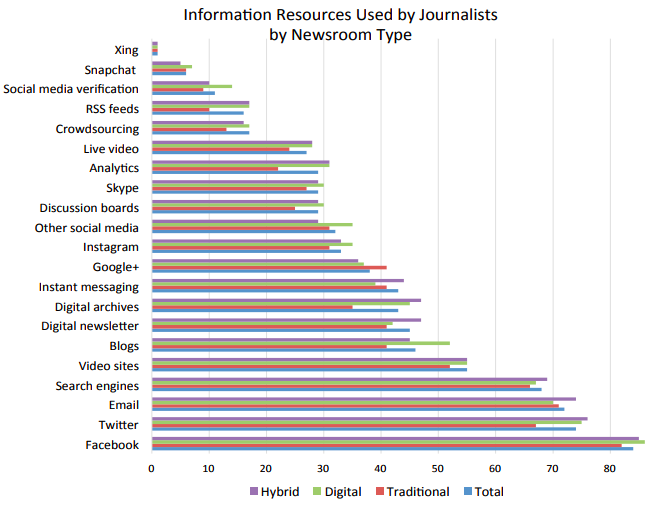
How far along are newsrooms when it comes to training their reporters to navigate a news ecosystem where people are accessing content via a wide variety of new channels? And how far along are organizations when it comes to truly thinking digital-first?
The answers to those questions are a little worrying, a new global ICFJ report, released Thursday night at the Online News Association conference in D.C., suggests. The survey, conducted with Georgetown University over the summer in 12 languages, received more than 2,700 responses from journalist and newsroom managers spanning 130 countries.
Many findings stand out, including that there’s still some disconnect between the training opportunities organizations offer versus what journalists say they want. The journalists surveyed, for instance, report wanting different skills training than what their newsrooms actually offered. Fifty-two percent said they wanted data journalism training, compared to 40 percent of newsrooms that actually offered it. Nine percent of journalists reported interdepartmental collaboration as a priority, while 22 percent of newsrooms offered training in it. And only 22 percent of journalists report wanting social media verification training, though 46 percent of newsrooms offer it.
Eeeek: The survey also found that most journalists used social media to find stories and source information, but only 11 percent report using social media verification tools.
Other telling findings around analytics use — and lack of analytics staff — signal newsrooms’ current priorities. Two percent of the newsrooms included in the survey employ technologists, and 1 percent employ analytics editors. (In fact, the survey found people with digital-focused titles like “digital content producer,” “social media editor,” or “analytics editor” made up 18 percent of total newsroom positions.)
While half of newsrooms checked analytics daily (24 percent in real-time), 19 percent rarely or never consulted analytics data (34 percent of individual journalists rarely or never consulted analytics).

The survey also found that of the 21 metrics it asked about — ranging from pageviews to clickthrough rate to engaged time — “only five are used regularly by the majority of newsrooms.”

Nearly half of newsrooms (47%) say they use analytics regularly to better engage audiences. However, as demonstrated above, most don’t regularly consult metrics related to audience engagement, including social shares, scroll depth, conversion rates, and engaged time. With a few exceptions, hybrid newsrooms are either keeping pace with or slightly ahead of digital-only newsrooms in their use of analytics across all functions. For instance, 39% of hybrid newsrooms use analytics to attract advertisers compared to 29% of digital-only organizations.
The full survey is full of other findings on digital security, new revenue models, platforms, and some attitudes towards what’s next, broken down by region. You can read it here.